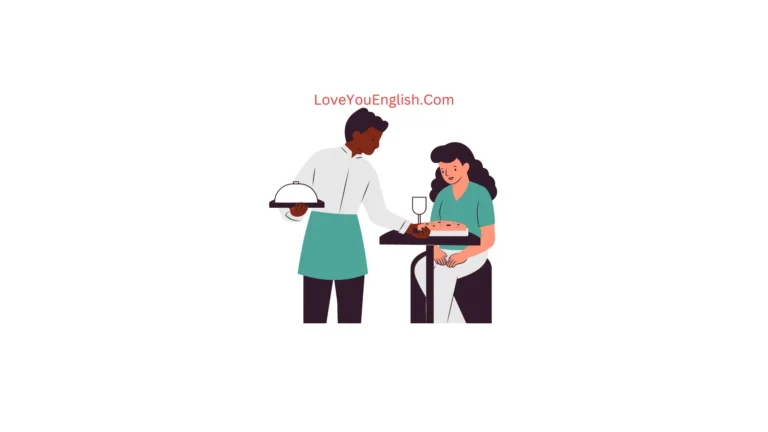10 Advanced C1 and C2 English Idioms
Hello everyone,
In today’s lesson, we are going to look at C1 and C2 English idioms.
First, we’ll look at the list with their meanings and then we’ll delve into their usage with examples.
By the end of this lesson, you’ll master 10 C1 and C2 English idioms.
Let’s have a look at the list.
C1 English Idioms:
- Catch someone’s eye
- Cut corners
- Cry over spilled milk
- Curiosity killed the cat
- Close call
C2 English Idioms:
- Curiosity killed the cat but satisfaction brought it back
- Clean as a whistle
- Cold feet
- Cut the mustard
- Caught red-handed
Now, let’s look at their meanings.
C1 English Idioms:
- Catch someone’s eye – To attract someone’s attention.
- Cut corners – To do something in the easiest or cheapest way possible, often sacrificing quality.
- Cry over spilled milk – To be upset about something that has already happened and cannot be changed.
- Curiosity killed the cat – Being too curious can lead to trouble.
- Close call – A situation where something almost goes wrong but ends up being okay.
C2 English Idioms:
- Curiosity killed the cat, but satisfaction brought it back – Sometimes being curious can lead to trouble, but it can also lead to satisfying discoveries.
- Clean as a whistle – Very clean or tidy.
- Cold feet – To feel nervous or hesitant about doing something.
- Cut the mustard – To meet expectations or standards.
- Caught red-handed – To be caught in the act of doing something wrong or illegal.
Now, moving onto their usage with situations.
Catch someone’s eye
“Catch someone’s eye” is an idiom that means to attract someone’s attention.
Imagine you’re in a crowded room with lots of people talking and doing different things.
If you want to show someone something or talk to them, you might need to get their attention first. That’s where the idiom “catch someone’s eye” comes in.
When something catches your eye, it means it grabs your attention. It could be something colorful, like a bright balloon in the sky, or something interesting, like a funny picture.
For example, if you’re in class and you see a cool drawing your friend is working on, it might catch your eye and make you want to see it up close.
So, when we say, “catch someone’s eye,” we mean getting someone to notice something or someone by making it stand out or being interesting.
Cut corners
“Cut corners” is an idiom that means to do something in the easiest or quickest way, often by leaving out important steps or details.
Imagine you have a big art project to do. You have to draw a picture, color it, and then cut it out neatly. But you’re running out of time, and you want to finish quickly.
Instead of doing all the steps carefully, you might decide to “cut corners” to finish faster. This means you might skip coloring neatly or not cut out the picture perfectly.
In everyday life, when we say someone is “cutting corners,” it means they are not doing something the right way.
They might be trying to save time or effort, but it can also mean they’re not doing their best work.
For example, if you’re cleaning your room and you quickly stuff things under your bed instead of putting them away properly, you’re cutting corners.
So, “cutting corners” means doing something quickly but not as well as you could if you took the time to do it properly.
It’s important to remember that sometimes it’s better to take your time and do things the right way, even if it takes a little longer.
Also read:
- Daily English Conversation about Travel
- Daily English Conversation Practice
- English Conversation: A Friendly Social Event
- English Conversation Practice: At the Coffee Shop
Cry over spilled milk
Imagine you have a glass of milk on the table, and accidentally, it tips over, and the milk spills all over the floor.
You might feel sad or upset because you wanted to drink that milk, but now it’s wasted on the floor. In this situation, you might start crying or feeling really bad about it.
Now, here’s where the idiom “Cry over spilled milk” comes in. When we say this phrase, it means being upset or worried about something that has already happened and can’t be changed.
Just like how crying won’t put the spilled milk back in the glass, being upset about something that’s already done won’t fix it.
So, “Cry over spilled milk” is a way of saying that it’s not helpful to keep worrying about things that are already done and can’t be undone.
It’s a reminder to focus on what we can do now, rather than getting stuck on things that are in the past.
Curiosity killed the cat
Imagine there’s a cat named Whiskers.
Whiskers is a very curious cat, always poking its nose into everything to see what’s going on. One day, Whiskers sees a shiny object and can’t resist investigating.
But oh no! It turns out to be something dangerous, and Whiskers gets hurt. In this story, Whiskers’ curiosity led to trouble.
Now, people use the saying “Curiosity killed the cat” to remind us that being too curious or nosy can sometimes lead to problems.
It doesn’t mean that being curious is always bad, but it’s a cautionary saying to be careful and not get into risky situations just because we’re curious.
So, when you hear “Curiosity killed the cat,” it’s like a little warning to be curious in safe ways and not to get into things that might be dangerous or harmful.
It’s good to be curious, but it’s also important to be smart and cautious about it.
Close call
Imagine you’re playing outside with your friends, and suddenly, a ball comes flying towards you, but you manage to duck just in time, and the ball goes past you without hitting you.
Phew! That was a close call! It means something almost happened, but luckily, it didn’t.
In everyday life, a close call is when something dangerous or bad almost happens, but we manage to avoid it just in time.
For example, if you’re crossing the street and a car comes speeding by but stops just before hitting you, that’s a close call. Or if you’re about to trip on a toy but catch yourself before falling, that’s also a close call.
So, a close call is like a reminder that something scary or bad almost happened, but thankfully, everything turned out okay.
It’s a moment of relief after narrowly avoiding a potential problem.
Curiosity killed the cat but satisfaction brought it back
Imagine you have a very curious cat named Whiskers.
One day, Whiskers sees something interesting in the garden and decides to investigate.
While exploring, Whiskers gets into a bit of trouble but eventually finds something really fun or exciting, like a new toy or a cozy hiding spot.
Whiskers might have gotten into a risky situation due to curiosity, but in the end, it found something enjoyable and satisfying.
So, when we say, “Curiosity killed the cat but satisfaction brought it back,” we mean that while being too curious can sometimes lead to problems or danger (like how Whiskers got into a little trouble), it can also lead to happy discoveries or experiences that make us feel good (like finding a new toy or a cozy spot).
It’s a way of saying that curiosity can have both good and bad outcomes, but overall, it’s a natural and important part of learning and exploring the world around us.
Clean as a whistle
Imagine you have a whistle, like the one a referee uses in sports.
When a whistle is clean, it means it doesn’t have any dirt or smudges on it. It’s shiny and looks new.
Now, when we say something is “clean as a whistle,” we’re not talking about an actual whistle.
Instead, we’re describing something that is very clean and tidy, just like a whistle that’s free from dirt and marks.
For example, if your room is very neat, with everything in its place, you can say it’s “clean as a whistle.”
Or if you wash your hands really well and they’re spotless, you can say they’re “clean as a whistle.”
So, “clean as a whistle” is a fun way to describe something that’s really clean and looks nice, just like a brand-new whistle without any dirt on it.
Cold feet
Imagine you’re about to do something exciting or maybe a little scary, like riding a big roller coaster for the first time.
You’re all set and excited, but just as you’re about to get on the ride, you start feeling nervous and unsure.
Your feet feel cold, and you might even start to think, “Do I really want to do this?”
When we say someone has “cold feet,” it means they’re feeling nervous or hesitant about doing something they were excited about or agreed to do.
It’s like when you’re all pumped up to jump into a swimming pool, but when you dip your toes in the water, it feels colder than you expected, and you hesitate.
For example, if you were going to perform in a school play but got scared at the last minute and didn’t want to go on stage, you could say you had “cold feet.”
Or if you planned to go on a hiking trip but felt unsure about it when the day came, that’s also having “cold feet.”
So, “cold feet” is a way of describing that feeling of nervousness or hesitation right before doing something, even if you were excited about it before.
It’s normal to have cold feet sometimes, and it can help us think carefully about our choices before we go ahead with them.
Cut the mustard
Imagine you have a sandwich, and you want to add mustard to make it taste better.
But if the mustard you use isn’t good or flavorful enough, it won’t make the sandwich taste as yummy as you hoped.
So, when we say something “cuts the mustard,” it means it meets expectations or does a good job at what it’s supposed to do, just like how good mustard makes a sandwich taste better.
For example, if you’re playing a game with your friends, and you do really well, you can say you “cut the mustard” because you met or exceeded everyone’s expectations.
Or if you’re baking cookies, and they turn out delicious, you can say your cookies “cut the mustard” because they’re just as good as you hoped they would be.
So, “cutting the mustard” is like saying something is good enough or meets the standard we expected. It’s a fun way of saying that something does what it’s supposed to do and does it well.
Caught red-handed
Imagine you have a cookie jar, and your mom told you not to take any cookies before dinner.
But one day, you sneak into the kitchen and take a cookie when you think no one is looking.
However, just as you’re about to eat it, your mom walks in and sees you holding the cookie.
You’ve been caught “red-handed” because your hand is right there holding the cookie, and there’s no denying it!
So, when we say someone is “caught red-handed,” it means they were caught in the act of doing something wrong or naughty.
It’s like when you’re caught doing something you’re not supposed to do, and there’s clear evidence that you did it.
For example, if you’re playing with toys and your sibling sees you taking their favorite toy without asking, they might say you were “caught red-handed” because they saw you doing it.
Or if someone is eating candy before dinner when they were told not to, and their parent catches them with candy wrappers in their hand, they’re “caught red-handed.”
It’s a way of saying that someone was caught doing something they shouldn’t have been doing, and there’s proof right there that they did it.
So, we’ve discussed 10 C1 and C2 English idioms. Use them in daily conversations and make a great impression.
____________________
Check out these awesome phrases & Idioms books I recommend:
IDIOMS and PHRASES Anglo,Synonyms and Antonyms Anglo,One Word Substitution






